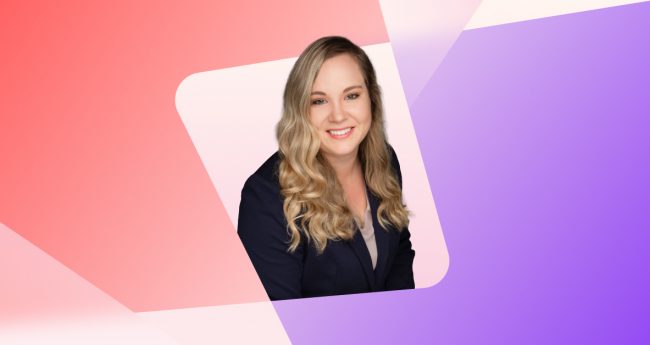
Conquering Chemistry: How Aktiv Raises the Bar on Confidence and Student Success
These inspirational students share how Aktiv has broken down longstanding barriers in their STEM courses
Chemistry faculty, Georgia State University, Perimeter College


Share
Professor Benjamin Tovrog has taught for 21 years at Perimeter College, a two-year college that’s part of Georgia State University. He long noticed that students were arriving to his Principles of Chemistry I course with diverse backgrounds. Some are first-generation college students. Others balance school with part- or full-time jobs. The common thread? Many of his students lack the basic foundations for academic success.
Tovrog took it upon himself to address learning gaps among his three dozen students per semester. Unfortunately, the homework platform he was originally using wasn’t designed with the same philosophy. “The program had a feature where if you answered incorrectly, you couldn’t move on,” he says. In turn, this led to students feeling discouraged and unsupported throughout their learning process. The grim reality of national chemistry exam scores also ignited a fire in Tovrog. To put things in perspective, the American Chemical Society (ACS) charts an average exam score of 50 percent.
At the time, many students exited his course with Cs and Ds, a trend that Tovrog’s colleagues also noted. He knew there had to be a more effective way of setting the table for exam preparation and confidence. It’s why Tovrog ultimately flipped his classroom using Aktiv Chemistry and saw a remarkable improvement in grades and student satisfaction.

The sound of a three-hour weekly lecture might be daunting to most. But Tovrog’s students see great value in attending class and getting a chance to demonstrate their knowledge. In Spring 2023, Tovrog ran a flipped course with the help of Aktiv’s intuitive platform for the first time. Here’s how he’s re-architected his class structure to better meet student needs.
Students complete a final cumulative exam at the end of the semester. Frequently using Aktiv has proven to be a win-win for Tovrog and his students. Aktiv’s question bank of more than 20,000 algorithmic problems provided the rigor and quality needed to help students prepare for their high-stakes test. “The questions in Aktiv largely mirror the type of questions found within the ACS study guide. It’s quite motivating and encouraging for students,” Tovrog says.

Tovrog’s multi-step approach to student success has paid off in his eyes. He may be greeted by an underprepared student body at the start of the semester. But by the end, he’s teaching a cohort of confident chemistry advocates who are able to retain and digest the material he’s shared throughout.

Not only are students scoring higher on their exams compared to their chapter tests. Tovrog notes that many students within his Aktiv cohort have gained national recognition for their exam performance. “Twenty-four percent of my class scored in the top 10 percent nationally,” he proudly says.
When students exit his course, they no longer grimace at their final grade. Tovrog couldn’t be more pleased with the letter grades he grants at the end of the term. And his students couldn’t be, either. “Akitv enabled more students to achieve B grades. Before Aktiv, only 10 percent of my students earned Bs and another 10 percent earned Ds. Now, 24 percent are receiving Bs (an 82 percent increase) and 0 percent are earning Ds. Aktiv really helped students excel to a greater degree than previous classes,” he shares.
Chemistry faculty, Georgia State University, Perimeter College




One of our Learning Specialists will give you a tour of the Aktiv Chemistry learning platforms and provide a free instructor playground account with access to the content library.

One of our Learning Specialists will give you a tour of the Aktiv Chemistry or Aktiv Mathematics learning platforms and provide a free instructor playground account with access to the content library.
